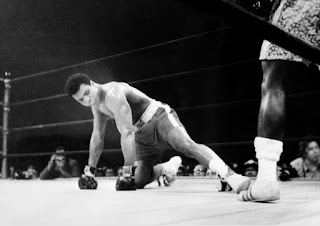Social distancing, lockdown, vaccination, ‘r’ number, shielding, NHS heroes are all words which we may not have been consciously aware of before. However, the new normal appears to be a life of better respect for personal space, improved personal hygiene, hoarding food and cleaning supplies, and a pathological fear of viral infections. After 9/11 things mostly changed for travelers despite the severity of the tragedy for those affected by the terrorist attack. However, it is a certainty that the aftermath of the covid-19 pandemic will affect all people all over the world.
I’m getting used to a world where I do not shake hands or arbitrarily hug anymore. This is quite a challenging adjustment. For a Black man, and in particular a Black African man shaking hands is an innate bonding experience. In fact, to not do so is generally seen as a form of aggression. It does seem that meeting with strangers will involve quite a bit of awkwardness while trying to decide how to navigate social greeting. Some people though have reverted to shaking hands and embracing in public routinely even while the risk of infection still exists.
Hopefully the strategic and operational approach to homelessness should change. It is possible to fund short stay shelters and even temporary accommodation for the homeless. However what must not be overlooked is the critical role that support and care will lend to managing homelessness. The need for emotional and mental health support for the homeless and people sleeping rough should not be overlooked. Housing is just one aspect of the problem. The difficulties they face in adjusting back into organised society and reacquiring life skills are daunting. However, indications are that things will return to the normal state of affairs when it comes to consideration of the homeless.
It would appear that working from home is going to become more prevalent now. It might even evolve into becoming the norm. With office space becoming difficult to keep decontaminated a lot of organisations might just start asking groups of workers to work from home as part of the terms and conditions of employment. It is very likely that hotdesking will be ruled out altogether. While working from home is a good way to offer flexibility to workers it can also mean that some workers can be pressured into taking on even heavier workloads. Without supervision, or as a result of personal pressure individuals might find themselves taking on too much work over too many hours.
It doesn’t seem like social distancing will hold out for very long on public mass transit. People are likely to pack themselves into whatever mode of transport they need to get where they’re going. However, it is quite likely that long distance air travel might present people with some concerns. Airports and airlines will have to introduce a raft of precautionary measures but who knows if these will be enough to guarantee safety or offer reassurance. It is very likely that the nature of personal service might change somewhat.
Social distancing will certainly challenge the retail shopping business model. The idea of cramming as many people as possible into an available space will need to be set aside for a while. Some enterprises might be able to get by with controlling traffic but others just won’t be able to survive on having so few people able to enter at any point in time.
Certain sporting activities will need to carefully consider what it will take for them to safely be resumed. Public participation events like runs may have to be limited to elite competitors for the foreseeable future. It is likely to require all participants to be tested for covid-19 and then quarantined before the day the event. I don’t see organisers being willing to shoulder this burden to ensure mass participation.
It does seem that the pandemic is unlikely to have too much of an effect on people’s love lives from what we have seen during the lockdown. The cavalier way in which some people have flouted lockdown guidelines to get their rocks off suggest that viral infection holds no peril for them. If you throw alcohol into the mix then quite a few are not going to know whether they are coming or going; nevermind what distance they are at.
Certainly covid-19 will leave us with a culture of improved hand hygiene. This is long overdue if you ask me. I know for me, I have reacquainted myself with breathing with my mouth closed. Not sure how or when I got away from that in the first place. Different countries are going to get the epidemic under control at different rates so it might be necessary to keep taking precautions quite some time into the future.







